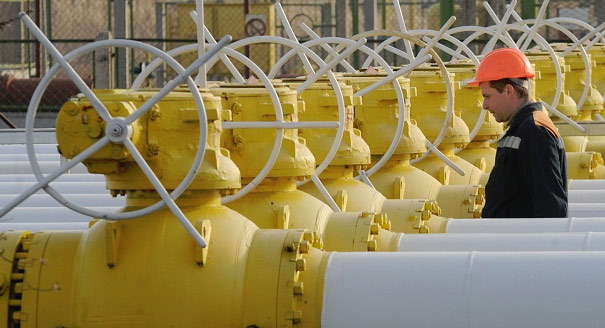Registration
You will receive an email confirming your registration.
Despite some reforms, energy inefficiency continues to play a major role in Ukraine’s dependence on natural gas imports and stymies the overall growth of the Ukrainian economy. The housing sector is a principal factor in the country’s low energy efficiency. To discuss how to improve efficiency in the Ukrainian housing sector, Carnegie partnered with the Foundation For Effective Governance to set up a video conference with Kyiv and Washington, DC. In Kyiv, discussants included Andrei Lobatch from the Foundation for Effective Governance, Valery Saratov, Head of National Regulatory Commission on Utility Services, and Alexander Alipov, Ukrainian Deputy Minister of Regional Development, Construction, and Utility Services. The Washington, DC, participants included Laura Van Wie McGrory and Jeffrey Harris from Alliance to Save Energy and Ola Göransson from the Embassy of Sweden. Carnegie’s Matthew Rojansky moderated.
Ukraine’s Energy Outlook
- Natural Gas: 30 percent of natural gas consumption in Ukraine is used by the housing sector for heating, said Saratov. Currently, households pay a lower rate for it than industry, he added. Overall, Ukraine spends more on gas than any other country in Europe.
- Tariffs: Increasing household tariffs on energy is a sensitive political issue, argued Saratov. Presently, about 2.5 percent of household income goes to paying for the energy bill, which is higher than the European average.
Improving Energy Efficiency
- Soft Loans: The Ministry of Regional Development, Construction, and Utility Services has been providing soft loans to individuals to modernize their household heating systems, said Alipov.
- Building Codes: New buildings are built according to energy efficient regulations, Alipov added. However, in existing buildings, municipal regulations often require the consent of every tenant for improvements, which hinders modernization.
Foreign Best Practices
- United States: On state and local levels, the United States has pursued energy efficiency improvements through municipal heating reforms, building code recommendations, and mandatory metering policies, said McGrory. Concerted information campaigns have also helped raise awareness about the importance of conservation, she added. Energy codes for building renovations and a strong ESCO sector have also contributed to improvements in U.S. energy efficiency, Harris pointed out.
- Sweden: Greater energy efficiency is best achieved through economic incentives, argued Göransson. Energy targets are set at economically efficient levels while loan repayment is tied to utility meters and not an individual, he added. Sweden has also lowered its income tax in exchange for increasing the energy and carbon tax.
Conclusions
Participants agreed that improving residential housing energy efficiency in Ukraine is a highly complex challenge. Multiple issues have to be engaged, including tariff regulation, financial infrastructure, consumer behavior, legal structure, and general political and economic issues. Developing a public-private alliance is important, particularly with companies that manufacture energy-efficient equipment. There are good innovative models that have been tried in other countries that could apply to Ukraine as well. This international perspective is worth studying in further detail.
